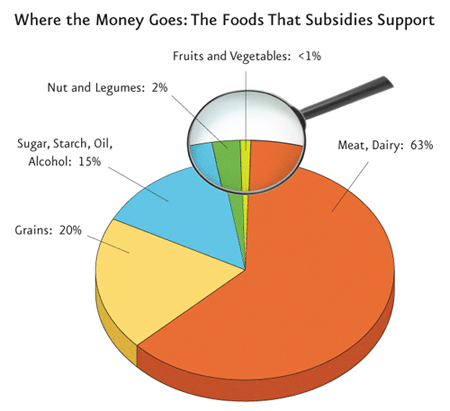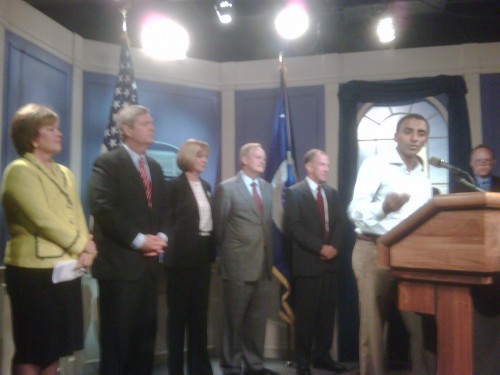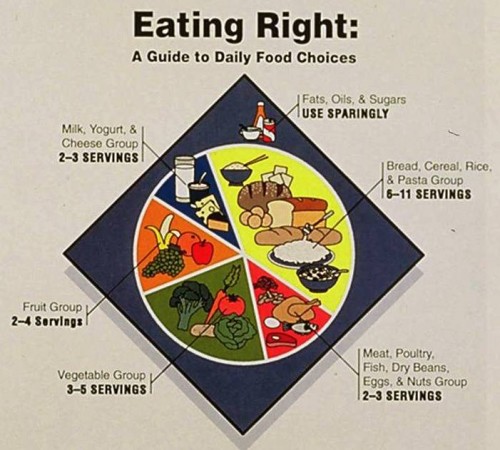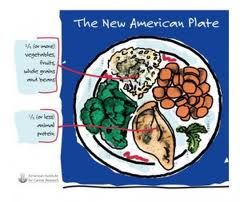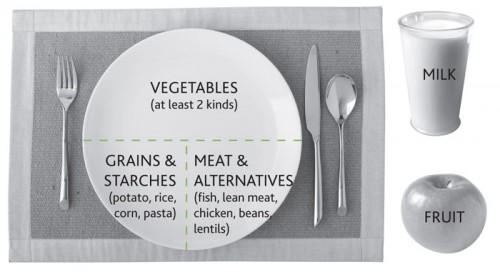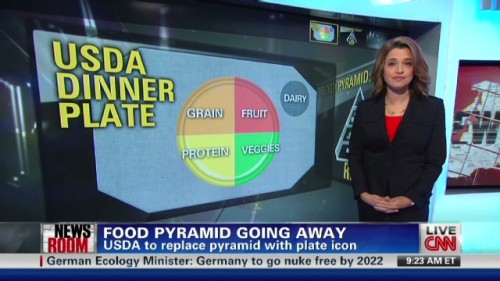Everybody loves MyPlate. Really?
I’ve been collecting public reactions to MyPlate, not least because I’m quoted in many of them.
The USDA collected supportive blurbs from a wide ranging group of supporters (mine among them)
Weight Watchers saluted the new icon in a full-page ad in the Washington Post
The Los Angeles Times covered it (I’m quoted)
The New York Times covered it (I’m quoted)
The Washington Post covered it (I’m quoted)
The Journal of the American Medical Association (JAMA) covered it (I’m quoted)
The New York Daily News covered it (I’m quoted)
The Des Moines Register covered it (I’m quoted)
USA Today covered it and published a photo of the plate with not-quite-fitting food models (I’m quoted)
ObamaFoodorama covered the many restrictions on using the plate (I’m quoted)
FoodNavigator.com covered it, focusing on the protein issue (I’m quoted)
Marian Burros wrote about it for Rodale (I’m not quoted). She points out:
First of all, the complexities of good nutrition haven’t disappeared. You can find some of them at ChooseMyPlate.gov. And there are factors contributing to obesity—the unhealthy practices of the food industry, the presence of obesogens in the environment, an unsustainable food system to name a few—that won’t go away just because the pyramid is gone.
The American Heart Association supports it.
The American Dietetic Association supports it:
As we have in past years, the American Dietetic Association was deeply involved in the development of the 2010 Dietary Guidelines. And we will use the Guidelines and the new MyPlate to provide the unequalled advice and services of registered dietitians to individuals and communities alike.
Unsurprisingly, the produce industry loves it, according to The Packer and the trade association, United Fresh.
The meat industry spins it (MeatPoultry.com):
We are pleased that the new food icon unveiled today…affirms in a clear and simple fashion that protein is a critical component of a balanced, healthy diet….Lean meat and poultry products are some the most nutrient rich foods available, are excellent sources of complete protein, iron and zinc and maintain an excellent nutrition per calorie ratio.
Amber Healy of Food Chemical News (the site is only open to subscribers) has collected a bunch of food industry responses. Here are some excerpts:
Jeane Wharton, executive director of the U.S. Dry Bean Council, couldn’t be more delighted with Thursday’s news. “Beans are a great protein, and they’re also a vegetable,” says Wharton, who observes that her industry’s product benefits twice from the new image.
The American Bakers Association joined in with their praise of the plate, especially for grains “appropriately occupying a large portion on the dinner plate,” which shows that the agencies responsible for nutrition advice “are making a strong statement regarding the importance of grains as the foundation of a healthy lifestyle.
The National Dairy Council, National Milk Producers Federation, International Dairy Foods Association and Milk Processor Education Program (MilkPEP) also praise the new image in a statement released Thursday. While dairy isn’t included on the plate directly, the importance of dairy products in a healthy diet is clear, they say.
“Dairy foods are rightfully being recognized — from the school house to the White House — as an important part of everyone’s diet,” says Jerry Kozak, NMPF’s president and CEO. “USDA’s new icon, with a simple visual metaphor of a serving of dairy products alongside a plate, says it’s vital to consume three servings of low-fat and fat-free dairy foods every day.” [Really? Vital? That’s not how I read it.]
Last but not least, Andy Bellatti in his Small Bites blog and Melanie Warner on BNET provide excellent analyses of the disconnect between MyPlate recommendations and current agricultural policies—both coming from the same, historically schizophrenic USDA.
You think “schizophrenic” is too harsh? The Physicians Committee for Responsible Medicine explains why agricultural policy needs a fix.

